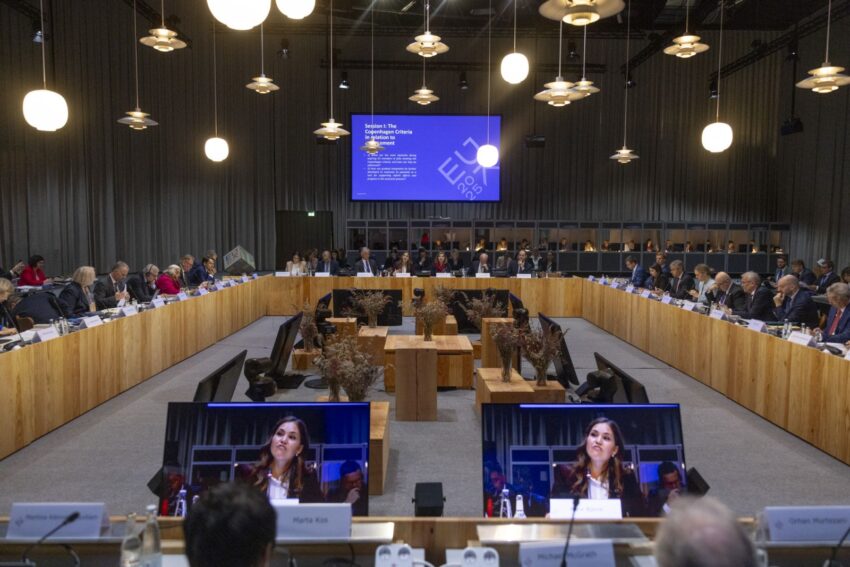Following the informal meeting of EU ministers for European affairs, including representatives from the Western Balkans, EU Enlargement Commissioner Marta Kos stated that Albania and Montenegro remain the most advanced candidates for EU membership.
Kos emphasized that other countries must meet criteria based on meritocracy and significant reforms to achieve accession objectives. When asked whether the 2030 timeline applies to all countries or only Albania and Montenegro, Kos clarified:
“I mentioned only these two countries today because they are the most advanced. Montenegro has already opened all chapters, and negotiations could realistically conclude by the end of 2026. Albania has two chapters left to open this autumn, and if reforms continue effectively, negotiations could conclude by the end of 2027.”
Kos also highlighted the importance of leadership and public support in candidate countries, noting that citizens’ backing of EU integration is crucial for successful reform implementation. Polls indicate strong support for EU membership among Albanians, with somewhat lower levels in Montenegro.
Regarding Serbia, Kos noted concerns over the country’s foreign and security policy alignment with the EU, urging reforms in media law, electoral law, rule of law, anti-corruption measures, and free media.
At the meeting, Kosovo’s Acting Deputy Prime Minister Besnik Bislimi reiterated Kosovo’s EU membership application submitted in 2022, calling for candidate status and the distribution of the EU questionnaire:
“Our institutions have demonstrated a high level of preparedness. It is necessary to assess Kosovo on the basis of merit, granting the questionnaire and recognizing its candidate status.”







